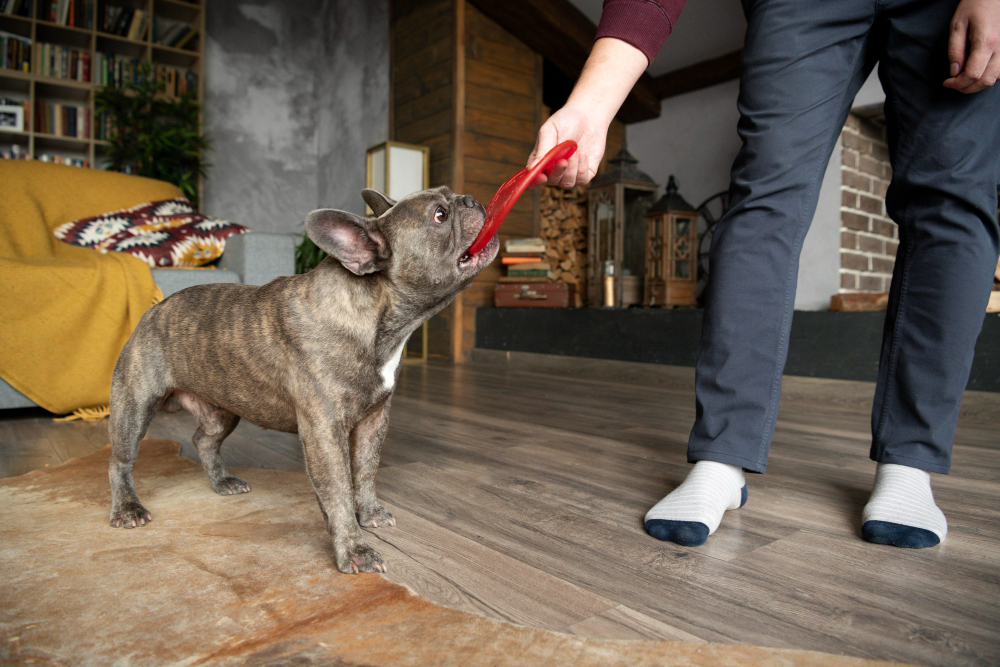A dog’s general health is improved by chewing. Serotonin and dopamine are essential neurotransmitters in the brain that support mental health and a positive mood. Chewing releases these neurotransmitters. Additionally, it might enhance the dental health of your dog.
One way to satiate your dog’s natural urge to chew on things is to provide it with a selection of chew toys. Giving your dog some nice chews is another way to satisfy his need to chew.
Some dog chews, though, are seriously dangerous. Here are a few illustrations:
Rawhide
It’s crucial to keep in mind that large pieces of rawhide are difficult to digest and may irritate or block the GI system, even though many dogs accept it well. Additionally, rawhide is frequently dealt with potentially harmful compounds. There are a few exceptions, though. Veterinarians purposefully created specific types of rawhide with safety and ease of digestion in mind. For additional information about safe rawhide chews that can help keep teeth clean, talk to your veterinarian.
Hard Plastic or Nylon Chews
In general, chews that are difficult to digest are more likely to result in indigestion or, at the very least, a blockage in the digestive tract. Dog chews made of hard plastic or nylon are frequently too harsh and can harm teeth. Additionally, they form very sharp edges when chewed. These toys are not edible, therefore consuming them will obstruct or harm the GI tract.

Animal Bones, Antlers and Hooves
The greatest danger to your dog’s teeth and digestive system comes from hard, indigestible animal fragments, especially roasted bones. Your dog might be able to snap off a piece and chew it if he doesn’t first break the tooth. Animal horns, like those of the buffalo or goat, become slightly mushy and frayed when chewed on by canines. These might be easier on the GI tract and less harmful to the teeth. But you should only employ them in moderation.
Different dogs enjoy different chews. Pick chews that go well with your dog’s size, temperament, age, and chewing habits. For dogs with delicate stomachs or those that are overweight, non-edible chew toys may be preferred. You might need to test a few different chews if your dog is healthy but picky before you locate the one that suits them the best. In general, healthy, undiscerning dogs will likely enjoy a little bit of everything.
One dog’s safety may not apply to another canine. Furthermore, something’s safety is not assured merely because it is marked as edible.
Sticks and Wood
One of the most well-known outdoor activities you can do with your dogs is fetch. In parks or while taking walks, many dog owners throw sticks for their dogs to catch. Throwing sticks or wood presents a challenge because many dogs may eventually learn to utilize them as toys and chew on the stick. Wood splinters readily when chewed, and pieces that get stuck in the dog’s mouth can cause an infection. Additionally, eating wood fragments could result in intestinal blockage.
Sticks have the potential to inflict quite terrible harm. Sticks can splinter and hurt a dog’s heart, esophagus, stomach, eyes, mouth, and other body parts. They might become stuck in your dog’s throat and make him choke.






